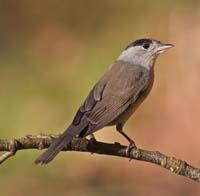A gene to go away

A gene that influences the length of bird migration is identified
The longer the ADCYAP1 gene, the longer the Chinese-cattle migrations are. This is the conclusion reached by some ornithologists from the Max Planck Institute, comparing some genes and behaviors of these migratory birds.
For a long time, migration has been known to be a consequence in part of a genetic impact. As the time of migration approaches, birds change behavior -- eat more than in other times and adjust the biological clock, for example -- and in this formation different genes intervene. Ornithologists have wanted to investigate this influence from genes that increase nocturnal activity. Six genes have been investigated and thus discovered the influence of the ADCYAP1 gene. Depending on the length of the gene, the bird increases its nocturnal activity and its migration distance. The finding has been carried out comparing 14 populations, some of them without migrating and others with very long trips. In all cases, correlation was seen.
The correlation is explained by the neuropeptide that encodes the gene, a molecule that participates in the biological clock of the bird and in the control of energy consumption.





